Welcome to Russian Maslenitsa 2021, complete with Covid effigy burning and giant blinis (PHOTOS)
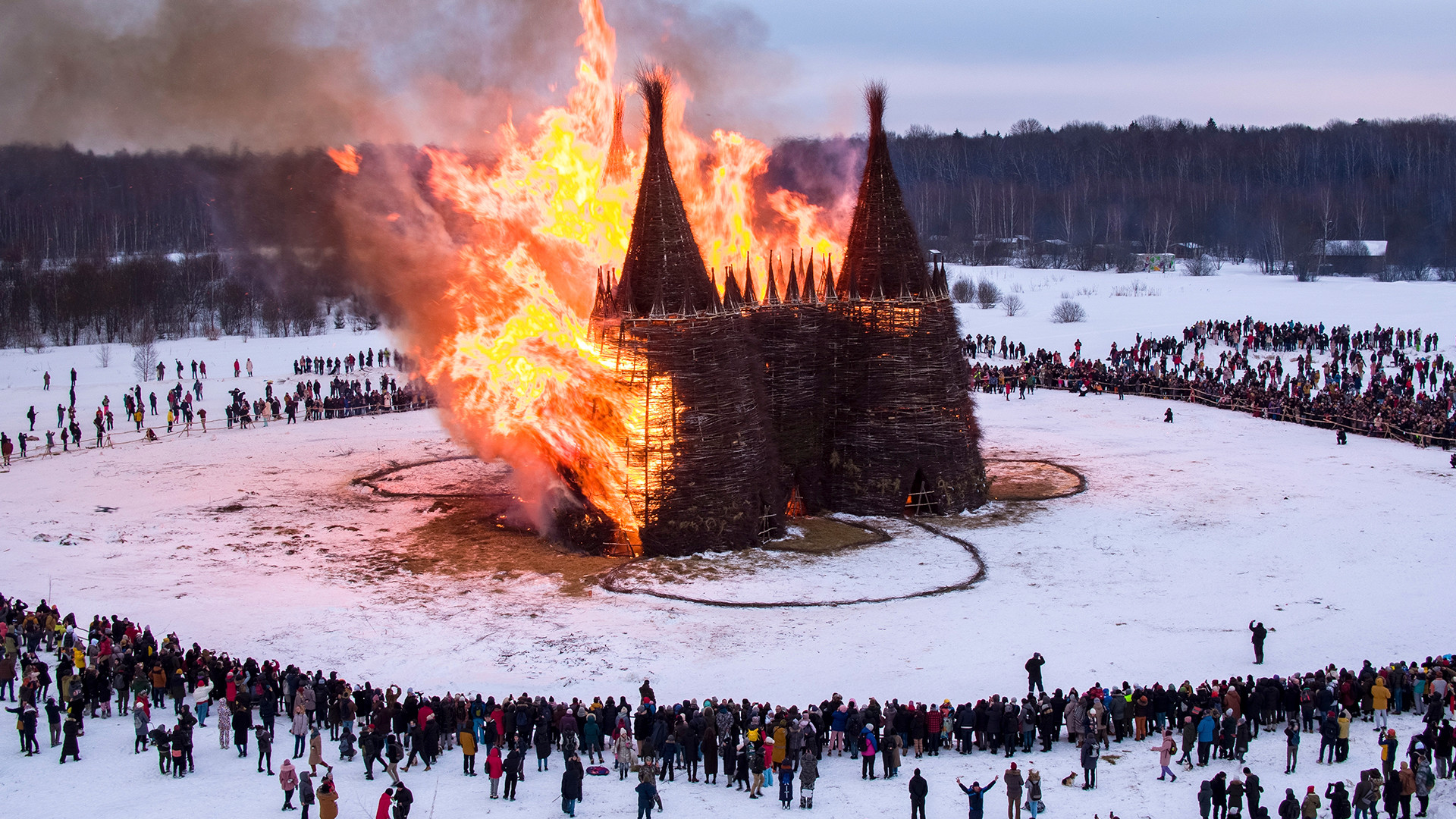
People watch a castle-shape wooden construction burning as part of celebrations at the Maslenitsa (Shrovetide) festival at the Nikola-Lenivets art park in Nikola-Lenivets village, about 200 kilometers (125 miles) south-west of Moscow, Russia, Saturday, March 13, 2021
APEach year, every Russian city and town celebrates the old Slavic festival of Maslenitsa that is dedicated to seeing off the winter and greeting the spring. The festival continues for a whole week, during which Russians bake blinis and, on Sunday, organize popular events, such as traditional khorovod circle dancing, sledge rides and the ritual burning of a Maslenitsa effigy. It is believed that, in burning the effigy, people rid themselves of all the bad things that happened to them during the previous year.
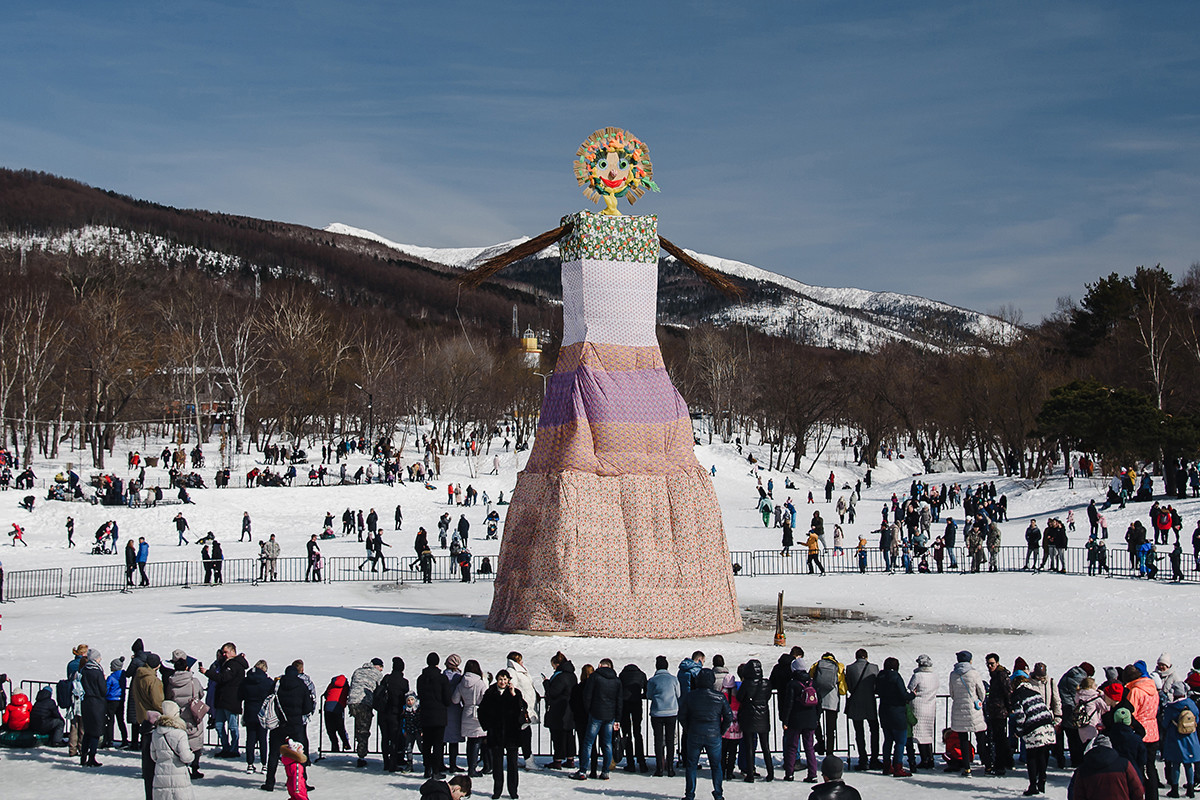
Maslenitsa celebrated in Yuzhno-Sakhalinsk, Russia
Nikolai Mikhalchenko/TASSIn 2021, on the occasion of Maslenitsa, residents of Yuzhno-Sakhalinsk (9,300 km from Moscow) baked an enormous pancake 2.5 meters in diameter, according to the city administration’s website. The pancake weighed in at 15 kg and took 30 liters of dough to make - afterwards it was cut up and handed out to everyone who wanted a piece.
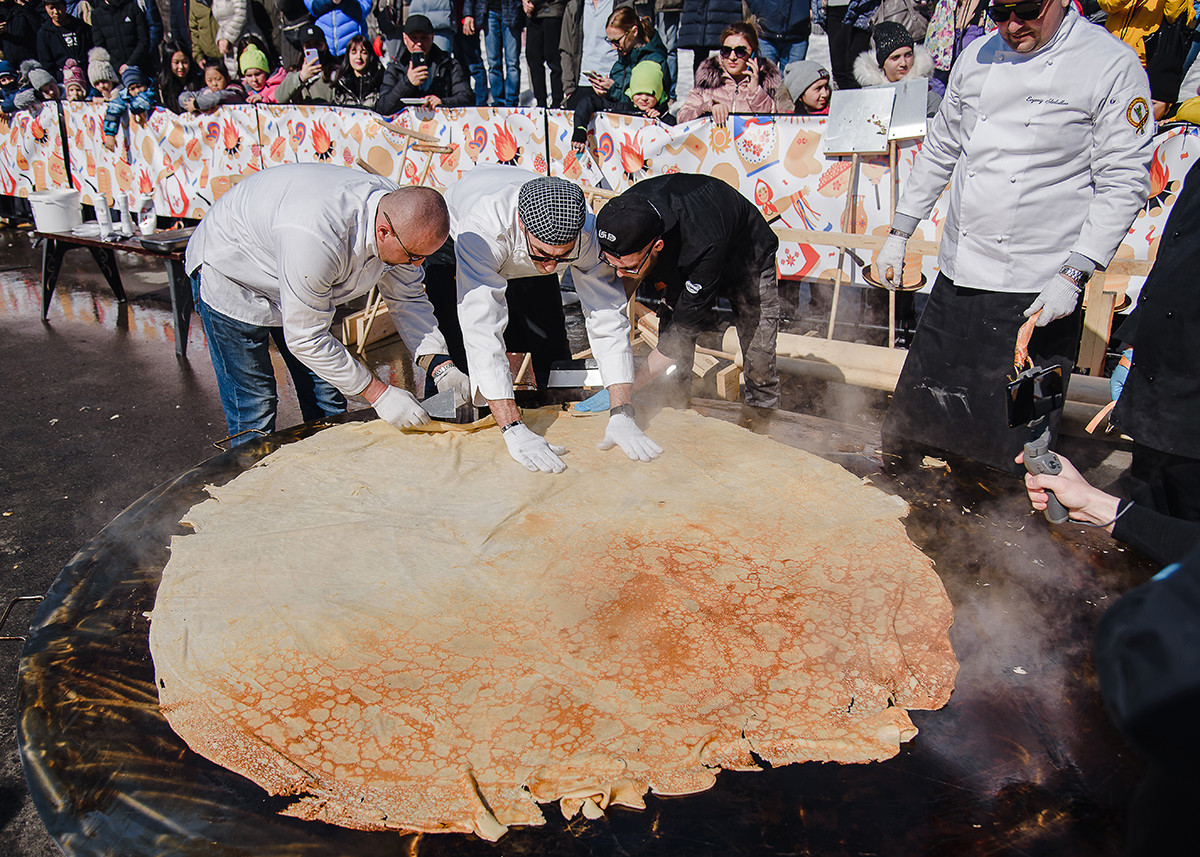
Maslenitsa celebrated in Yuzhno-Sakhalinsk, Russia
Nikolai Mikhalchenko/TASSIn Vladivostok and other Rusian cities, men climbed up Maslenitsa posts for a prize - those who managed it were presented with home appliances and household items.
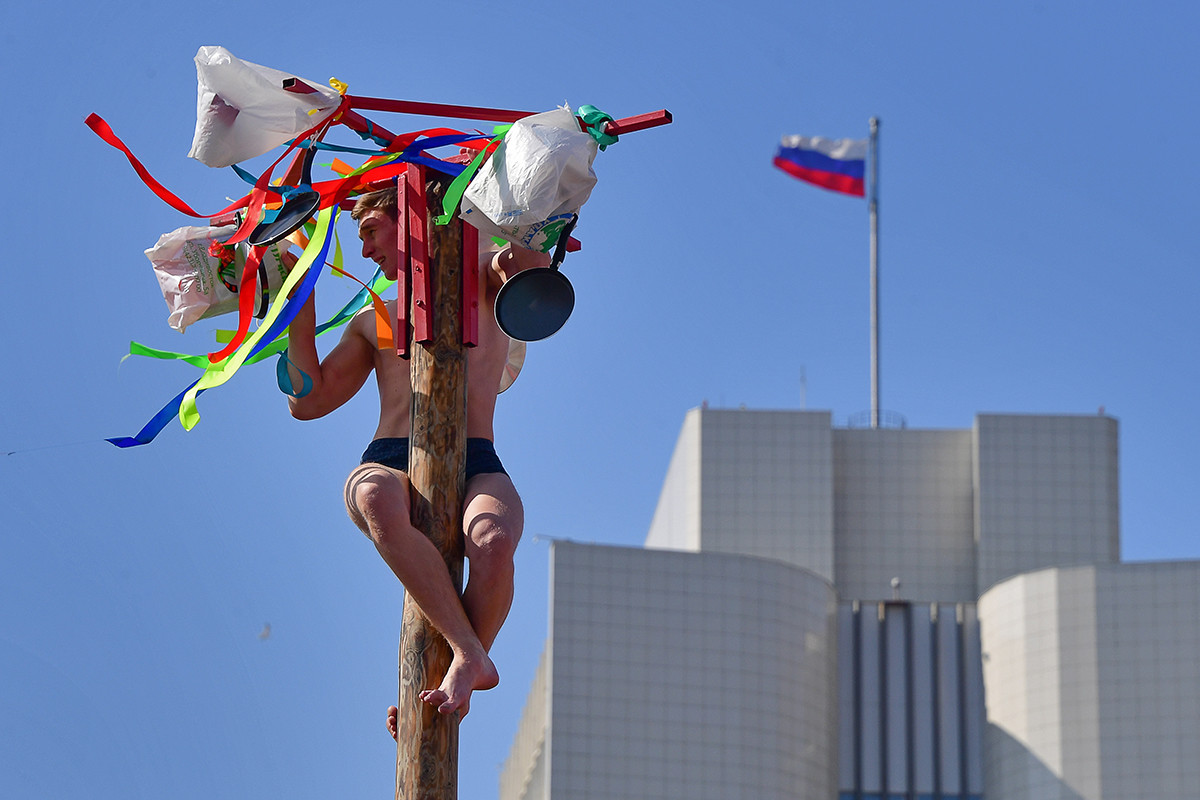
Maslenitsa celebrated in Vladivostok, Russia
Yuri Smityuk/TASS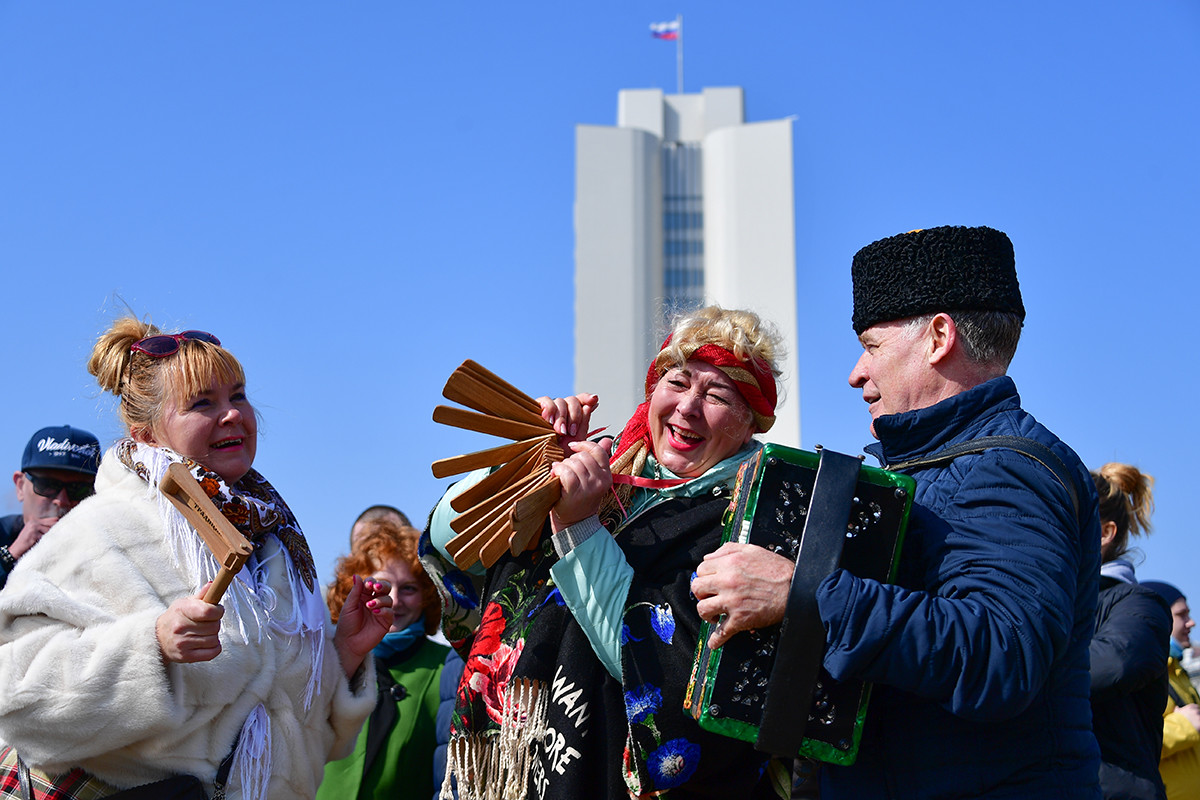
Maslenitsa celebrated in Vladivostok, Russia
Yuri Smityuk/TASSIn Novosibirsk, local ‘walruses’ (fans of winter swimming) wearing beachwear raced around in flippers and on skis and then organized a swimming race in the icy water. Apart from swimming costumes, the ‘walruses’ wore kokoshnik headdresses and ushanka caps with earflaps.
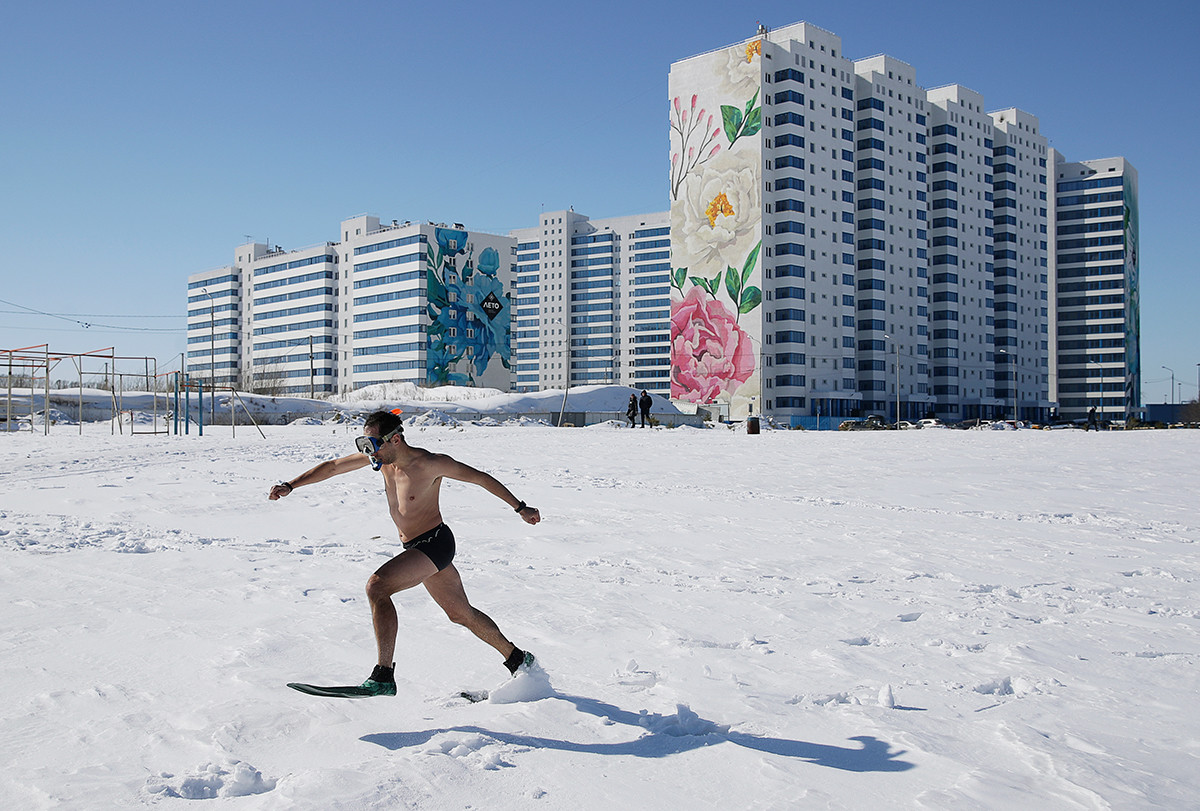
Maslenitsa celebrated in Novosibirsk, Russia
Kirill Kukhmar/TASS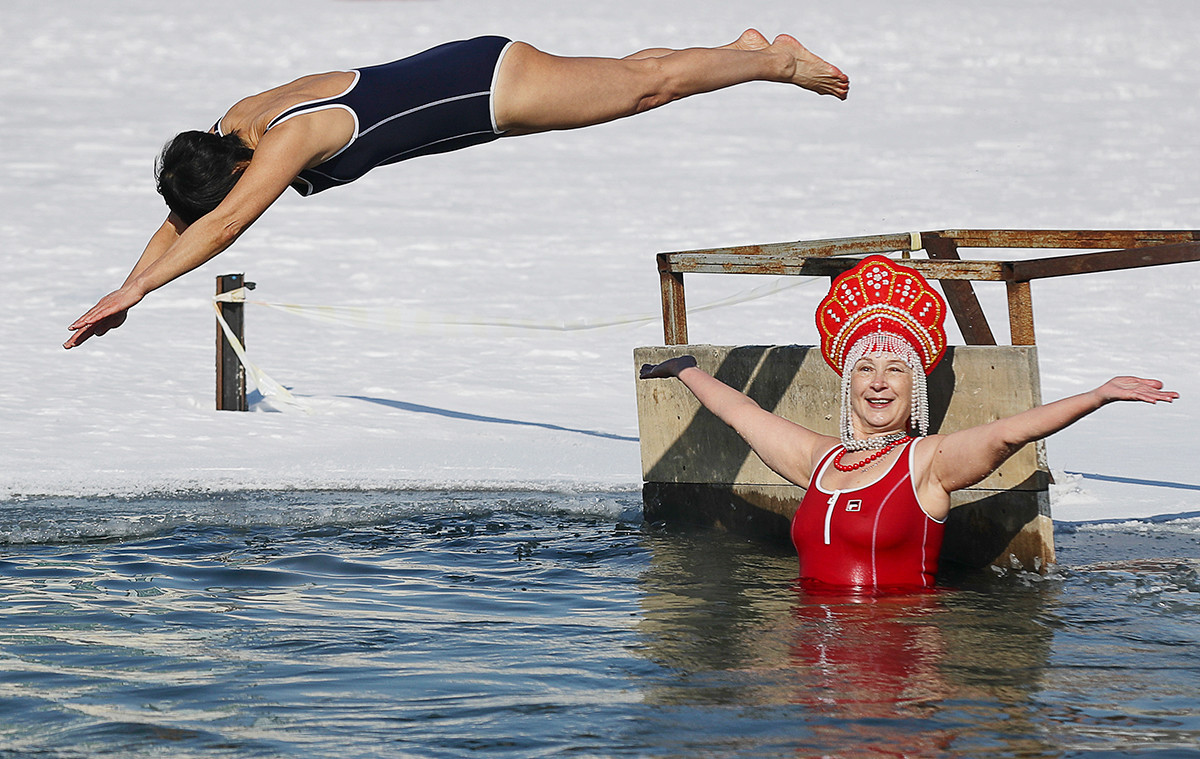
Maslenitsa celebrated in Novosibirsk, Russia
Kirill Kukhmar/TASSResidents of Lipetsk Region (400 km from Moscow) burned an effigy of Covid-19 instead of the usual one, in order to rid the region of coronavirus infection as rapidly as possible.
The biggest spectacle involving an effigy took place in an art park located in the Kaluga Region village of Nikola-Lenivets (200 km from Moscow). In a show choreographed by Moscow artist Sergey Pakhomov, an enormous castle of the ‘Corona Ogre’ was set on fire, along with Covid masks and all the other attributes of life under Covid.
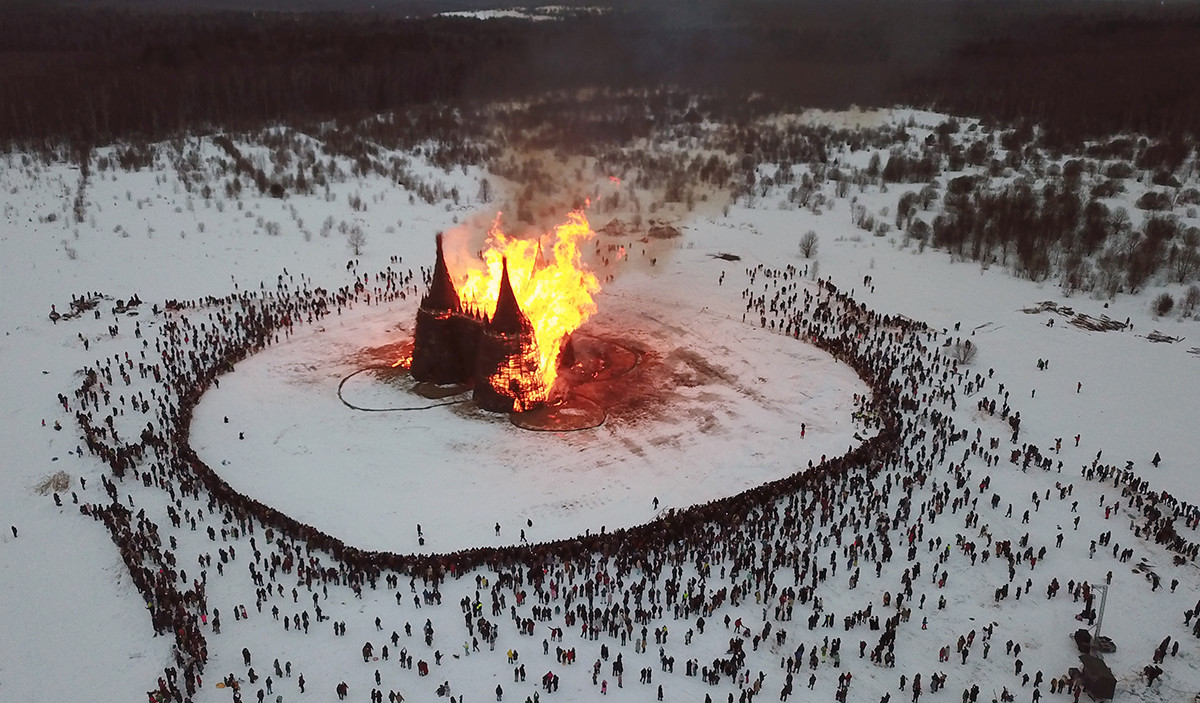
The burning of an art object by the artist Nikolai Polissky at the celebration of Maslenitsa in the art park "Nikola-Lenivets" of the Kaluga region
Pavel Bednyakov/SputnikDuring the burning ceremony, social distancing was maintained in the park, supervised by old-style strolling performers who broke up large crowds using switches of twigs.
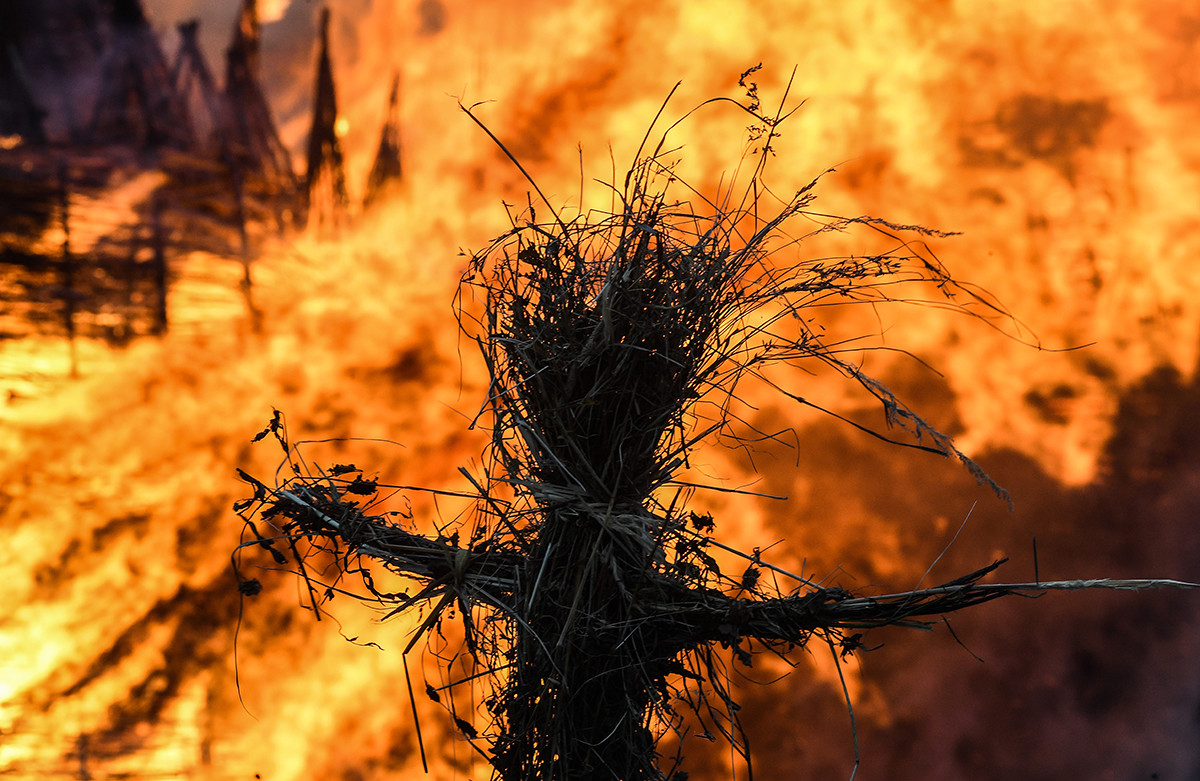
“Everyone is currently thinking about this new ‘pestilence’ - coronavirus. Scientists and doctors alike are grappling with ways to deliver us from this contagion. And we, ordinary people, must also help them as we can. For instance, by burning all bad things for Maslenitsa. In our case, it’s a large castle belonging to the Corona Ogre. <...> As soon as we burn it, the disease will start to decline, and everyone will be healthy again,” claims Nikolay Polissky, the park’s founder.
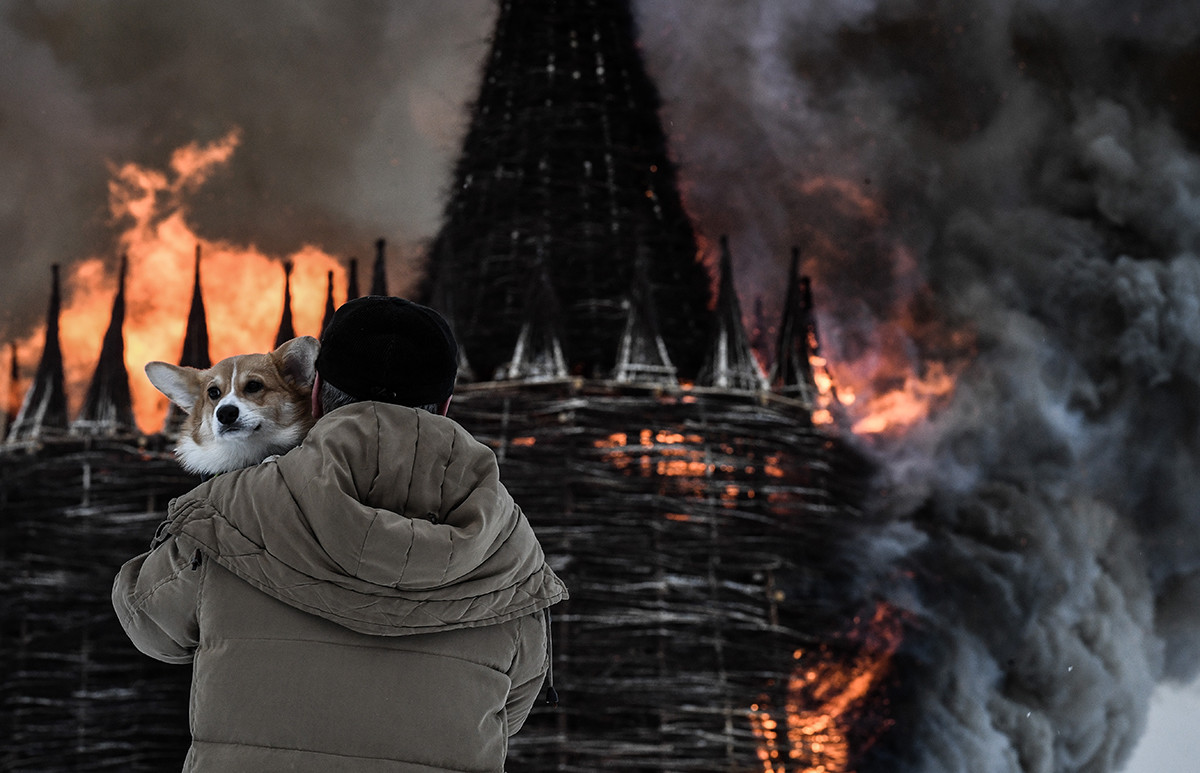
If using any of Russia Beyond's content, partly or in full, always provide an active hyperlink to the original material.
Subscribe
to our newsletter!
Get the week's best stories straight to your inbox